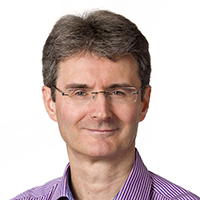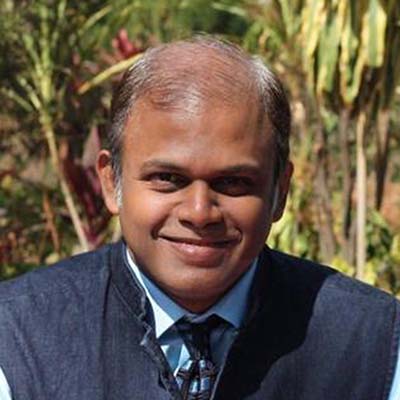

- Tom Alford
- Deputy Editor, Treasury Management International
My Life in Treasury
The treasury experience of Amit Baraskar Vice President & Head – Treasury, Thomas Cook India Group, has been accrued over more than a decade and a half with the one company. But it’s a business unit that has a key role to play in a wider organisation that reaches across 28 countries and five continents, with its customers travelling to all corners of the globe. TMI talks to Baraskar about his own journey so far.
The resilience of some businesses to unforeseen downturns is quite remarkable. While the travel sector has been one of the hardest hit by events of the past few years, the capacity to bounce back demonstrated by some of its players is indeed noteworthy.

One such company is Thomas Cook (India) Ltd. Part of the Fairfax Group, it is a leading integrated travel and financial services company. It reported a consolidated revenue of £0.4bn for nine months ended December 2022, an increase by 167% over the previous year. In the same period, the group also posted an EBITDA (Earnings before interest, taxes, depreciation, and amortisation) of c.£20m. These figures suggest two facts: that travel is back on the agenda for many as control of the Covid-19 pandemic strengthens, and that Thomas Cook is a business with strong fundamentals.
Clearly, it has managed to keep its financials on the rails even as the markets were sent on an uncomfortable roller-coaster ride. A key part of its strategy has been the mitigation of FX exposure risk. The part of the organisation responsible for managing group FX risk is Thomas Cook India, where Baraskar has occupied the treasury hot seat for 16 years and counting.
The volume of deals executed by the team make it the largest non-bank FX trader in India, a position that secured it an authorised dealer licence from the regulator, the Reserve Bank of India. With its own FX dealing room, SWIFT membership and a range of nostro accounts, Baraskar comments that “in some respects, we’re less like a corporate and more like a bank”.
As part of Thomas Cook India’s FX business, the dealing room front office reports to the FX business head, while its middle and back offices are Baraskar’s territory. The dealing room provides all FX cover and will fund on a daily basis using currency and cross-currency swaps.
As well as managing FX for the various travel verticals, Baraskar also takes the group treasury role for India and Mauritius, the latter an offshore zone where Thomas Cook has a holding company for all overseas group entities. This sees him directly handling all the usual cash and liquidity management tasks, including hedging. Treasury support is further offered by his team to entities across the other 26 countries. This, he explains, may include offering advice to finance or other functions, arranging facilities or finding a suitable banking partner, or even making arrangements for regional cash pooling.
With a broad spread of responsibilities split between traditional corporate treasury work and the bank-like focus on FX, Baraskar’s work spans the globe. His daily responsibility starts early with Japan, Australia, New Zealand, and Singapore, and ends with the closing of US dollar flows. This often finds him working from the early hours until late at night, travelling the globe from the comfort of his treasury office in Mumbai.
While he does find time to sleep, he points out that if disruptions impact his territory, he is always ready to take action. “It’s a matter of having to solve the problems as they arise; often there is no option to delay a payment, and certainly not to default, so that can create sleep disturbances, but that’s how global treasury is.”
Moving into position
Baraskar arrived in treasury via the world of accountancy and auditing, and is Indian certified public accountant (CPA) qualified. Many accountants have made the same move into treasury, and he duly acknowledges the benefits of having studied it formally. “My team handles the accounting for group borrowings and investments, related incomes and expenses, and all the hedges, so a good grounding in accounting has proven essential.”
However, Baraskar is also skilled in the seemingly unrelated field of computer programming, having earned certification from India’s National Institute of Information Technology, and studied IT for couple of years. Although not a traditional launch pad for a career in treasury, he sees some clear correlations between his IT adventures and his current field of operation.
In computing, he says, while coding languages come and go, the fundamentals and the logic remain consistent throughout. “It helps me understand treasury systems and how they function, but also drives correct thinking in areas such as process automation and data analytics,” he explains.
With these two complementary components in store, Baraskar also admits to “a stroke of good luck” in finding his first treasury role. Indeed, at the same time Thomas Cook India was advertising a vacancy in its treasury team, he had made the decision to leave his existing job. “It was not a particularly conscious decision to switch to treasury, but I quickly realised that this is where I belong.”
Sustaining his belief in this over the ensuing years has been the fact that treasury continues to offer different challenges every day. “I need something new to drive me onwards, and treasury delivers just that. But it’s also exciting to see the fire in the eyes of some of my teammates; they expect me to lead by example, and that adds to my enthusiasm for what I do.”
While Baraskar’s current activities meet his expectations, he is nonetheless striving to continue his journey into treasury. Taking on more responsibilities within the FX function and, at some stage, breaking into global treasury, are on his roadmap. Having tackled some significant challenges in his career to date, he feels his professionalism has been tried and tested.
Experience necessary
Not long after he joined Thomas Cook India, the collapse of Lehman brothers, in September 2008, had helped trigger market freefall and a global financial crisis. “Many businesses were facing severe disturbances, with banks backing out of deals at the last moment,” he comments. “We had a repayment scheduled with the promise of a rollover, but the bank backed out at the last moment. That caused us some sleepless nights, but despite the intense pressure we managed to find a new facility. It was tough, a very steep learning curve.”
For many younger treasurers, their first exposure to extreme market conditions would have come with the advent of the Covid-19 pandemic. It would have been an extremely difficult time for most. However, as with other more experienced treasurers, Baraskar was well-placed to withstand what was to come.
“There were many aspects of the travel industry that were in distress at that time, and there were a number of external stakeholders in India with whom we had to fight to stay ahead of the game,” he recalls. “During the lockdown period, I was asked to join regular formal meetings with senior management so we could align our strategy. This ensured we could face up to those external stakeholders, fully prepared and able to stand our ground.” Again, it was a tough but ultimately fruitful learning experience for Baraskar.
Asked to select a particularly beneficial lesson from exposure to these significant challenges, he offers the need to have a robust plan B. “During the lockdown, continuity plans that businesses had made were failing. But these were unprecedented events in our time. Having a plan B in readiness is essential. If plan A looks like it’s not working, activate plan B; don’t wait for plan A to fail before considering what to do next.”
With the financial and economic world moving headlong towards inflation, steep interest rate increases and recession, Baraskar reports that his function is not deeply affected. “The rate at which interest rates on USD, euro or sterling are rising has been higher than for the rupee. This means my swap costs have come down dramatically.” In fact, with his cost of borrowing still relatively low, and his sizeable cash investment book yielding more, the trade-off he is exposed to with any rate rises elsewhere is “acceptable”.
Riding the waves
While Thomas Cook India is protected to a degree from some of the issues that businesses elsewhere are facing, the road out of the pandemic does have its bumps, not all of which are necessarily pandemic-related. As an example, Baraskar cites the frequency of commercial banking system failure in India, with outages often happening around vital cut-off times.
“All cut-offs are relevant to me as my responsibilities are directly linked to that flow, starting with Japan and ending with the US dollar markets,” he says. “If a banking system fails at cut-off, and there is an outflow that is stuck in the system, it becomes a serious challenge.” With otherwise good business relationships established with these banks, he feels he can’t easily replace them. But, he adds, “at least now with experience, I can judge when and where the outages are most likely to arise”.
Following his own advice, Baraskar has a plan B to try to mitigate the risk of service outages, but as he notes, “if you have to resort to these too often, the overall process becomes highly inefficient – and every corrective measure I take has a potential financial and resource cost”. Indeed, when the North American markets are open and other markets around the world are closed, placing a buffer in the relevant USD and CAD accounts to cover the risk of system failure would prove highly cash inefficient. To this end, he says he has “learnt to strike a balance”.
That being said, one source of increased efficiency for Baraskar, especially around day-to-day treasury, is process automation. From the perspective of this former computer programmer, the absorption of technology into a wide spectrum of treasury activities is both welcome and “inevitable”. And with the exception of strategic planning, he feels every treasury step is a potential target for automation. The legacy tools at the top of his current hit list include Excel and email, which he sees as both inefficient and a distraction from his team’s potential to focus and add value.
Mindful of Baraskar’s openness to technology in treasury, Thomas Cook India is today being assisted by a number of robots. These aid certain payments activities, credit confirmations and reconciliations. There are plans to go much further. While the firm’s Covid-19 response understandably drew a significant amount of resources away from this project, he reports that the pace is picking up once more, suggesting that “2023 should be an epic year of automation for me”.
Getting personal
Despite the ever-present challenges, Baraskar’s journey through treasury is one defined by the seizing of opportunities. Armed with a transferable skill set that is characterised by agility and an aptitude for problem-solving, he says that in the often-high-risk world of treasury “it really matters if you can think on your feet and respond quickly and effectively”. But he knows that treasurers need well-developed interpersonal skills too.
One area where he feels this is particularly important is in banking relationships. In Asia in particular, he says these relationships tend to drive treasury. “This is not just about getting on socially with your partners but also about how you conduct business with them. You have to ensure your business flows are as you want them to be, but you need to understand that how you interact with your banks will impact how treasury manages major disruptions such as the pandemic.”
Of course, building and sustaining strong relationships applies to internal teams too. “The constant flow of activity within the treasury function makes team alignment a critical factor,” states Baraskar. But treasurers are increasingly finding the benefits of building relationships with other treasurers too. “This is where networking comes into play,” he says. With many India-based professionals in his network, he is able to exchange notes and ideas with a community subject to similar concerns.
An example he offers of a mutual issue is the migration from the LIBOR pricing benchmark to new risk-free rates, such as SOFR in the US. “With the exception of the US, Europe and the UK, the rest of the world is absolutely confused by this,” Baraskar admits. The need for guidance has been somewhat urgent, so it was a point on which his treasury peers united and shared their experiences, learning from each other as a community.
Of course, the exchange of knowledge, especially for career development purposes, can be orchestrated at a personal level through mentoring. Baraskar is fully supportive of this notion, saying that he has benefitted greatly from the support of Thomas Cook India’s CEO and Group CFO. These are notably high-ranking individuals who lead by example.
As a Hindu, Baraskar is also motivated to study the teachings of Krishna (“the ultimate mentor”) who, he explains, guides those seeking success to be armed with only two things: a clear vision and a sharp focus. “There is little to be learnt from a mentorship that provides the mentee with quick solutions to their problems. A good mentor is someone who inspires their mentee to seek their own answers, stay focused on their goals, and give only very broad-based direction on how to progress,” he says.
Community spirit
Baraskar’s enthusiasm for sharing professional knowledge frequently manifests in his various writings for professional publications, including the Thomas Cook in-house magazine, speaking engagements at regional events, and even as a panel judge for related professional awards. He takes his communicative approach seriously because he believes “knowledge dies if you don’t pass it on”.
The engagement with the wider treasury and finance community has also presented him with welcome exposure to a broad sweep of related occupations, including colleagues in banks, ratings agencies, legal firms, software vendors, and most recently those focused on ESG activities within APAC. “It enables me to start bridging the gap between treasury and its stakeholders,” he explains.
This is a personally important goal. Although the aims of treasury are fully recognised in North America and Europe, Baraskar feels the level of awareness and understanding is lacking in most other regions. “In Asia, beyond Hong Kong and Singapore, there is work to be done to raise the level of consciousness, and we as a profession need to explain what treasury is all about.”
On this point he states the need for a formal body – such as a National Treasury Association – to add weight and give voice to the profession. With only an informal arrangement in India currently, he says: “We have the power, but we are not yet united in our voice.” He is striving to bring this about.
Fit for purpose
As with anyone engaged in a high-stakes occupation, there has to be a release valve. For Baraskar this means sport. A self-proclaimed “fitness freak” from an early age, he shows no signs of slowing down, and is planning his post-pandemic track and field comeback in 2023. What’s more, he is a qualified sports nutritionist with his books – 2018’s Boundless Powers of Superfoods, and the soon-to-be-published 2023 title 55 Questions on Health & Fitness – helping others to achieve their goals.
But these endeavours are not a simple diversion for Baraskar; they are intricately connected to his professionalism. By developing a healthy mind and body, he believes that the individual is better equipped to tackle life’s challenges and, in much the same way, a well-managed business possesses greater resilience when the threat levels rise.
Bringing the two together and achieving outstanding results has been a journey for Baraskar. And while the main body of his efforts may have been focused on one business, the distance he has travelled and the results achieved in that time are impressive. It’s a journey, he says, that will continue for quite some time.



